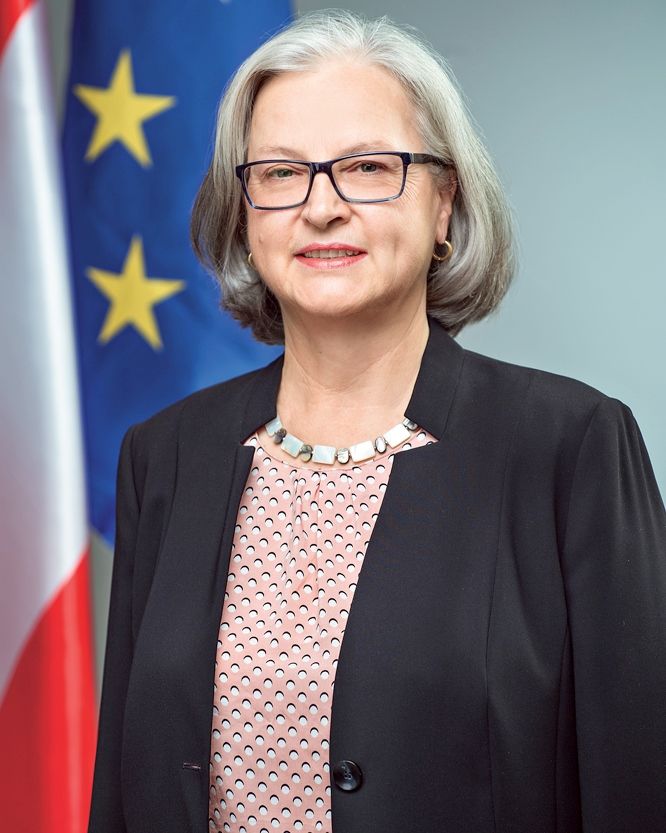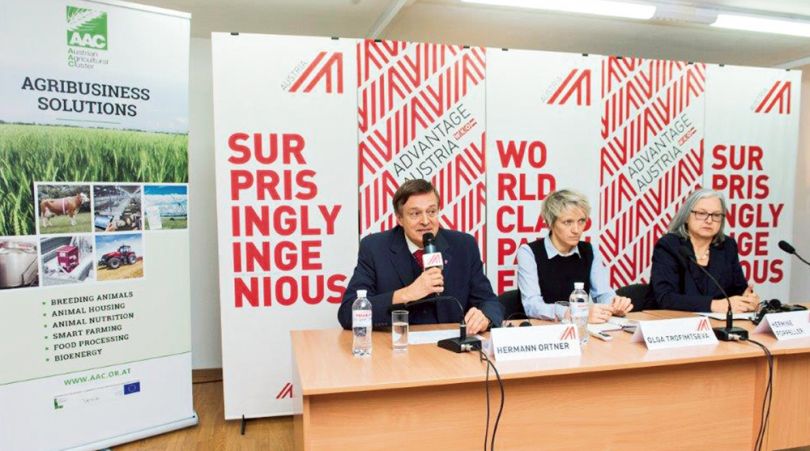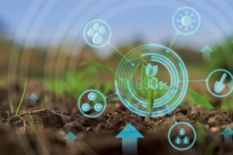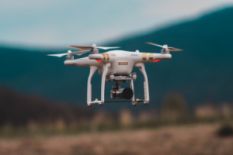- Austria ranks among the top-10 foreign direct investors in Ukraine. How can Ukrainian agriculture attract more Austrian investors today? Austria has been one of the biggest investors in Ukraine. There are also a few Austrians who invested in farming by renting farm land in Ukraine to either grow grains, sunflowers or oil seeds or breed animals.
Austria has been one of the biggest investors in Ukraine. There are also a few Austrians who invested in farming by renting farm land in Ukraine to either grow grains, sunflowers or oil seeds or breed animals.
One of the big problems for foreign investments in agriculture in Ukraine in general is definitely the unclear situation about land ownership. There is still the moratorium on the sale of land and a lot of discussions when and how this moratorium is going to be lifted. The IMF calls for lifting this ban on land sale, but the government has not taken any decision yet. This kind of insecurity also reflects on those who have invested in Ukraine and have been farming on rented land.
Will they be able to keep their long-term rent contracts or will they be forced to buy land? Will they be able to buy land, if there is a restriction on who is eligible to buy agricultural land? There are a lot of questions which are still waiting for an answer. The interest of Austria in the agricultural sector is clearly shown by the rising number of Austrian companies who participate in agricultural fairs in Ukraine, like in the Agro Animal Show in February 2018 where Austria was represented by a group stand of 12 companies while some more companies had individual stands. The Austrian Agricultural Cluster, an association of innovative producers of agricultural, food processing and renewable energy technologies and services, who have for many years successfully exported their products, was also present at the Agro Animal Show 2018 and wants to get more involved in Ukraine. This shows the huge potential of the agricultural sector in Ukraine, which is also seen in Austria.
– Ms. Olga Trofimtseva, Deputy Minister of Agrarian Policy and Food of Ukraine for European Integration, said that promising areas for our cooperation are: veterinary, sanitary and phytosanitary cooperation; bio-energy technology; joint scientific and technical programs; organic production (experience and information exchange). Could you please comment on this and name the main areas for our cooperation in agriculture?
Ukraine has a good potential to develop the meat and dairy sector. This requires quite some investment in breeding animals and also in equipment. Austria – because of its geographical conditions and small-sized farms – is traditionally a grassland country with cattle, sheep and goat breeding, at least in the mountain areas in the west of the country.
The Austrian sheep and goat breeding association is already exporting quite a number of sheep and goats to farms in western Ukraine. Farms in western Ukraine are, with some exceptions, usually rather small – sheep and goat breeding could be introduced to give farmers in the Carpathians or in other disadvantaged areas of Ukraine a good source of income. Also, cattle and pig breeders in Austria are offering high-quality breeding cattle and pig which could be introduced to the Ukrainian market.
Another important area is the processing of agricultural products. To be able to export processed food to the European Union and other countries, hygiene and sanitary standards have to be met. The Austrian technology for quality control of agricultural products is highly valued abroad too. Austrian machines to work on grassland, seed drills technology, irrigation technology, equipment for barns, pens and stables for cattle, horses and pigs are well renowned in a lot of countries in Europe.
Talking about bio-energy, Austria is one of the leading countries in terms of bio-energy generation. Quite a number of farms in Austria are already equipped with their own Biogas plants using animal waste crop residues or straw for gas and electricity production. Biogas plants using the Austrian technology are working in a number of European countries, so why not also in Ukraine! Organic farming – Austria is a champion in organic farming in the European Union! Some 19% of all farms and 22% of agricultural land in Austria are certified organic farms. And the trend towards more organic production continues. People in Austria – and not only there - are willing to pay a higher price for high-quality organic food. Organic farming in Austria is also family farming and therefore an important pillar of sustainable agriculture and rural development. Organic farming is definitely one sector which has a very good chance for growth in Ukraine. It needs a good processing industry and good marketing.
Organic farming – Austria is a champion in organic farming in the European Union! Some 19% of all farms and 22% of agricultural land in Austria are certified organic farms. And the trend towards more organic production continues. People in Austria – and not only there - are willing to pay a higher price for high-quality organic food. Organic farming in Austria is also family farming and therefore an important pillar of sustainable agriculture and rural development. Organic farming is definitely one sector which has a very good chance for growth in Ukraine. It needs a good processing industry and good marketing.
There is already one example of Austria’s interest in organic and GMO-free farming in Ukraine: the Austrian company Danube-Soja supports farmers in Central and Eastern Europe, including in Ukraine, to grow, market and process GMO-free soya. This GMO-free soya is used in human foodstuffs as well as animal fodder. To be able to produce organic meat, it is necessary to feed animals GMO-free fodder. So, there is a huge demand for GMO soya in countries with a high quota of organic food like Austria.
– There is an ÖPUL program in Austria to promote agriculture and environmental protection, which, among other things, promotes eco-production. Please, tell us more about this program and the eco-strategy of the state in general.
The ÖPUL (Österreichisches Programm für umweltgerechte Landwirtschaft), Austria’s Program for environmentally friendly agriculture was established in 1995. This is the main spatial planning measure of the state for developing rural areas. The idea of ÖPUL is to financially support those who work on the land (mostly of them farmers who own their land) if they protect the nature and environment. For example, if a farmer does not use fertilizers to enhance the profit, he gets support for protecting the ground water resources. If a farmer cultivates the steep meadows or the pastures high up in the mountains, he gets support because this is an avalanche protection measure. A farmer can get support for keeping rare breeds of animals or if he cultivates rare plants he is contributing towards a greater biodiversity.
There is a broad range of measures under this program which guarantee that Austrian farmers can produce high-quality products while protecting the environment and contributing towards the fight against climate change. In 2015, about 91,000 farms in Austria were included in the five-year program ÖPUL 2015. The program covers 77% of farmland, which is one of the highest percentages in the EU. The overall amount paid to farmers for the measures in support of the environment and biodiversity in 2015 was about 382m euros. The program is co-financed by the EU (the second pillar of the Common Agrarian Policy of the EU) and Austria.
ÖPUL guarantees that farmers are paid for their contribution towards a sustainable, eco-friendly farming and in that way can still make a living from the farming income. Together with other measures from the new Austrian Master Plan for the rural areas like providing rural areas with modern infrastructure, high-speed Internet, job opportunities for young people, measures for life-long learning etc., the way of eco-friendly farming contributes to the concept that rural areas will in the future provide for excellent living conditions too.
– What advice would you give to foreigners planning to open a business or continue their career in Ukraine?
Business always goes to those places where it sees the biggest opportunities for profit and risks are manageable. The Association Agreement and the Deep and Comprehensive Free Trade Agreement with the EU is now fully in place and provides for a lot of opportunities for both sides. Reforms have to be done in Ukraine, legislation has to be adapted to comply fully with high European standards which, by the way, are also a market opener for Ukrainian products in a lot of other countries in the world. Looking for a good reliable partner in the country where you want to invest is never a bad thing. And talking to successful investors, asking for their advice is not a bad thing either.
Interviewed by Myroslava Makarevych
Photo: provided by Hermine Poppeller.









